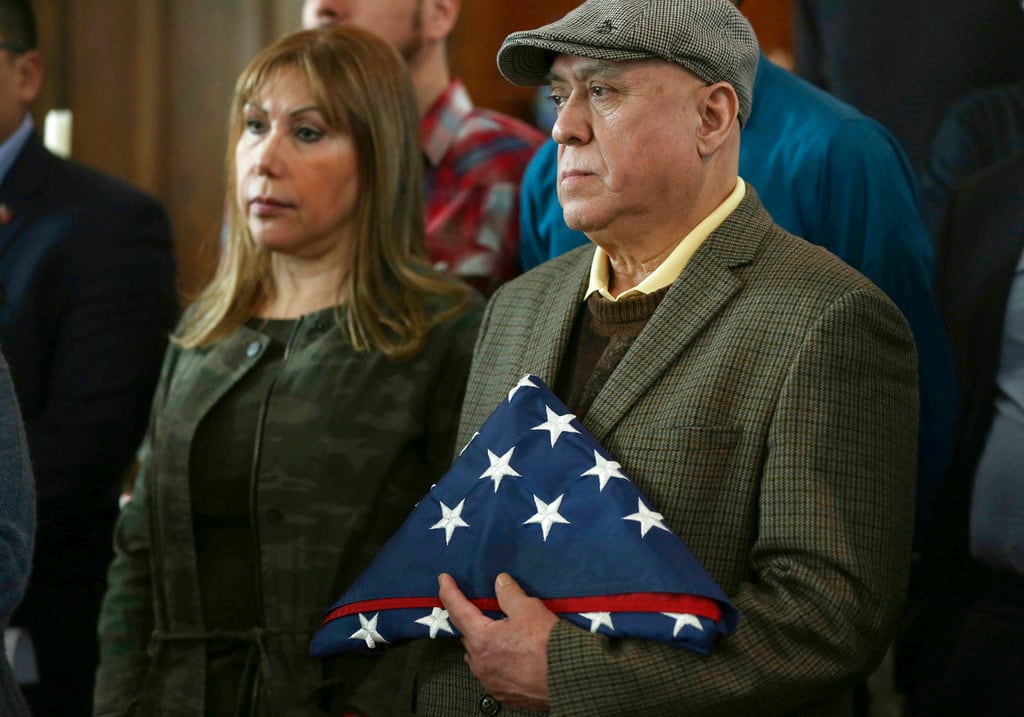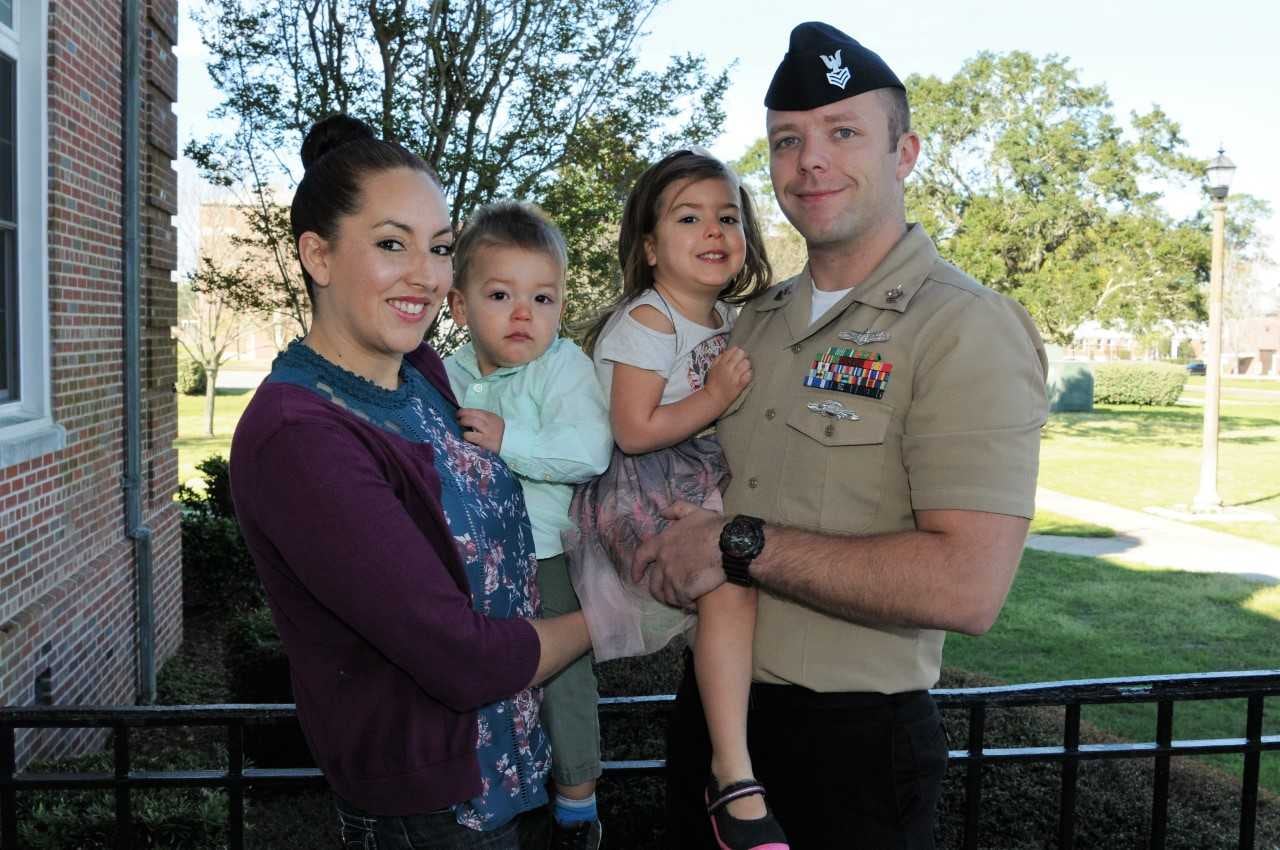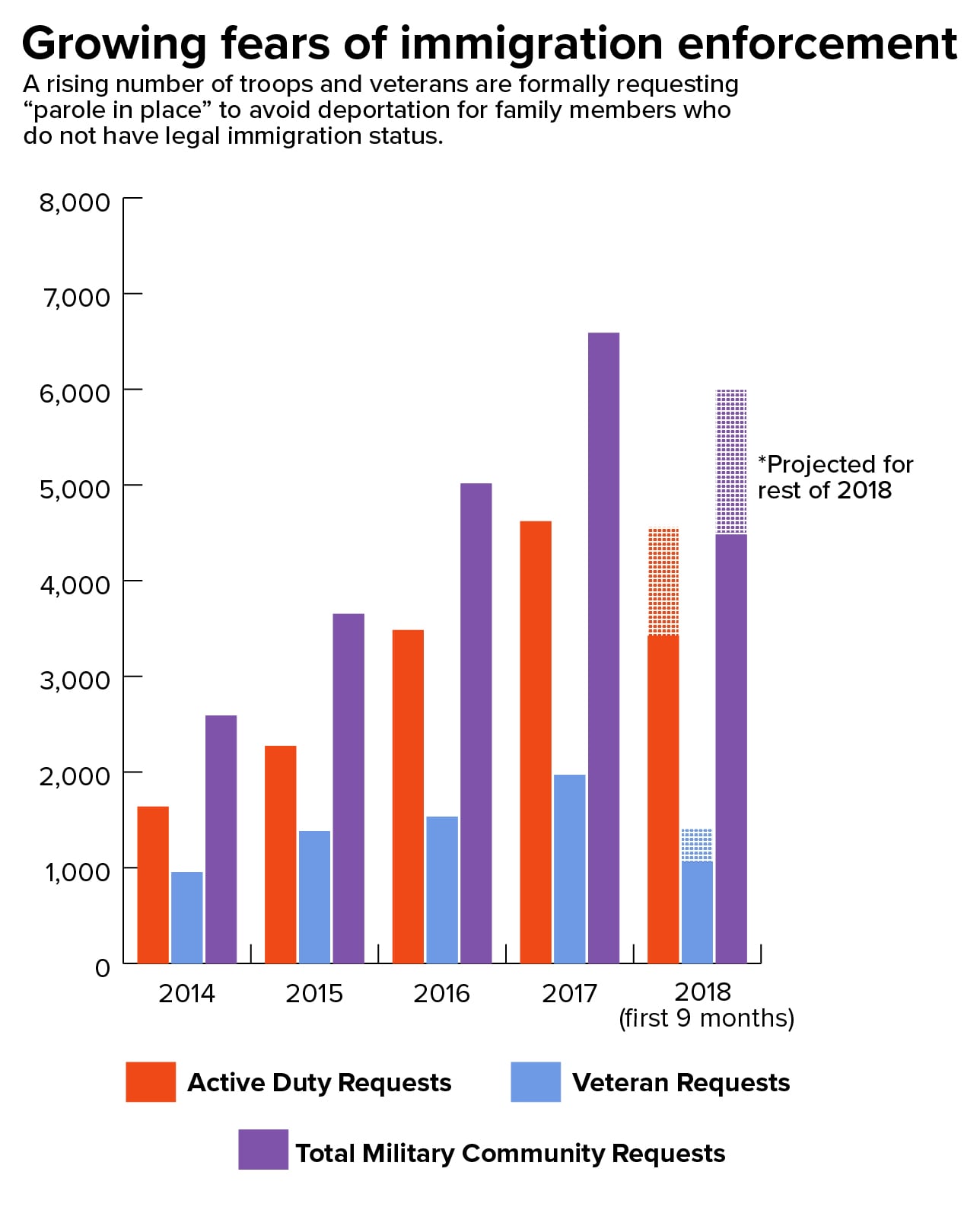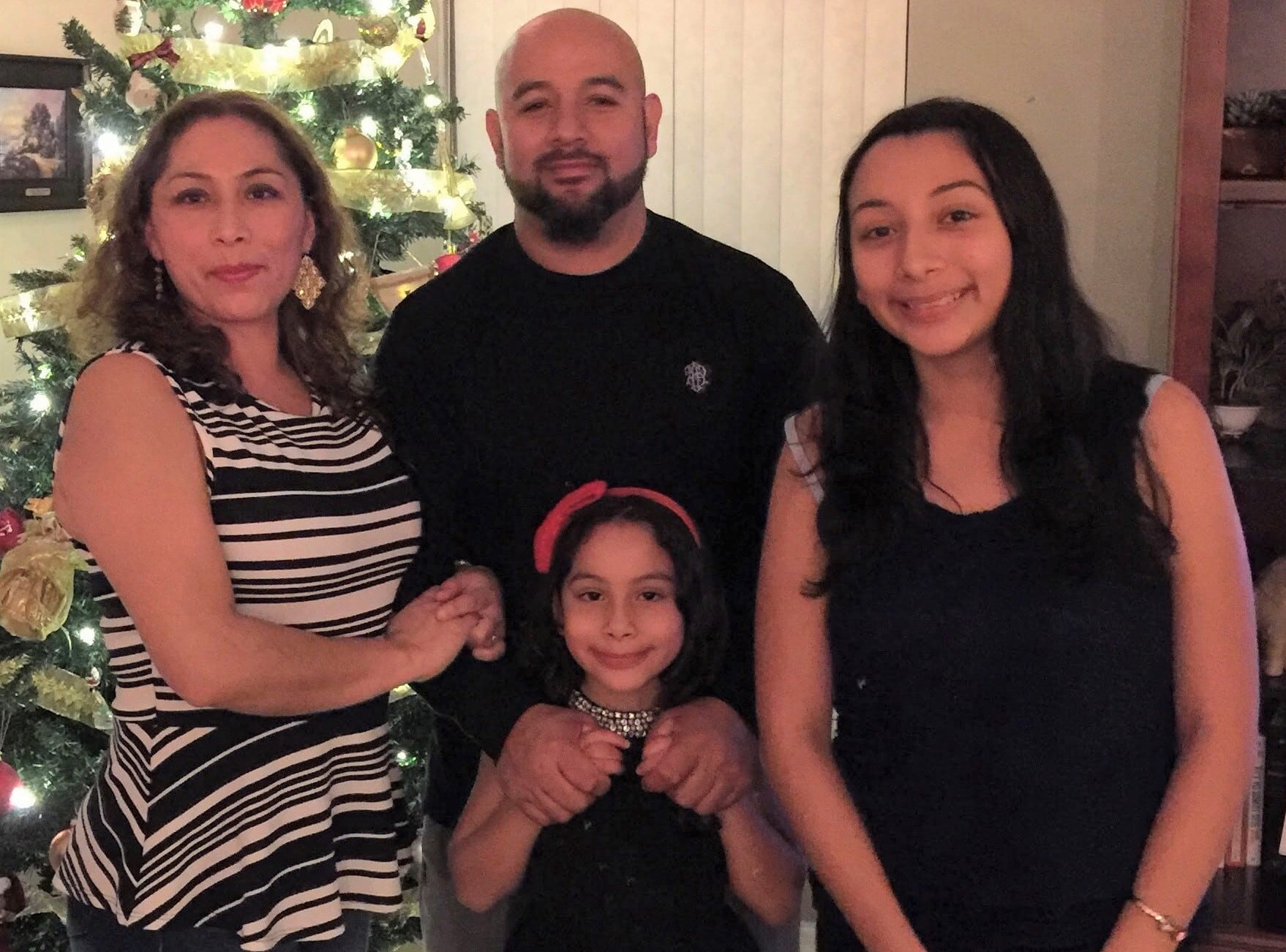As part of the Trump administration’s crackdown on immigration, the government is rejecting more requests from veterans and their dependents for protection from deportation, according to new government data.
Last month U.S. Citizenship and Immigration Services released previously unreported statistics on the numbers of active duty and veteran service members who were seeking deportation protections for a spouse or a dependent.
The data shows that rejections of veteran requests have increased under President Donald Trump, from about a 10 percent rejection rate in fiscal 2016, the last year President Barack Obama was in office, to an almost 20 percent rejection rate through the first nine months of fiscal 2018. Specifically:
In fiscal 2016, the Obama administration denied 140 veteran requests for deportation protection and approved 1,304 requests.
In fiscal 2017, the Trump administration denied 250 veteran requests for deportation protection and approved 1,449 requests.
In the first nine months of fiscal 2018, the Trump administration has denied 218 requests for deportation protection and approved 875 requests.
While the increase in rejections for the dependents of active members was not as steep, it still rose from slightly more than 11 percent in fiscal 2016 to about 14.5 percent to date in fiscal 2018.
RELATED

The protections, known as Parole in Place, allow members of the military to petition the government to drop any removal proceedings against a spouse or dependent who entered the U.S. illegally. That action then allows that family member to seek an adjustment in his or her residency status without having to leave the country.
The ability to remain in the U.S. is a critical advantage because most other undocumented immigrants seeking legal residency in the U.S. must first depart the country and not return for years while going through the lengthy process of obtaining a visa. Parole in Place allows those military families to stay together.
Parole in Place requests from both active duty and veteran service members spiked 31 percent from the last year of the Obama administration to the first year of Trump’s presidency, to 6,586 applications in 2017, as the new president directed the Department of Homeland Security to increase the number of deportations it processed. However most Parole in Place decisions take months or years to get approved and often are not decided in the same year as they are applied for.
Among active duty service members the spike in 2017 from the year before was 33 percent, and among veterans, 29 percent. Multiple active duty families have contacted Military Times with fears that their spouse or dependent will be deported while they are deployed, and veterans have contacted the paper worried that despite their military service, their family will be split apart.
RELATED

Secretary Jim Mattis has said previously that active duty service members and veterans who had served honorably and who were part of the Deferred Action for Childhood Arrivals program would be protected. Mattis said he would work with DHS to see whether there were similar protections available for their dependents.

Tara Copp is a Pentagon correspondent for the Associated Press. She was previously Pentagon bureau chief for Sightline Media Group.




